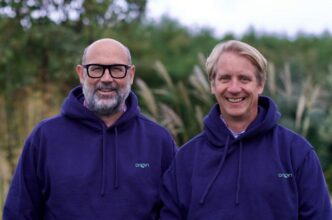Current genome editing tools like CRISPR have revolutionized science, but they still struggle with key limitations—namely, control, specificity, and the size of DNA sequences they can accurately modify. These issues have slowed progress in treating rare and complex diseases and limited breakthroughs in bioproduction and regenerative medicine. Quidditas Therapeutics, a Belgian biotech startup founded in 2022, is tackling those constraints head-on.
The company has just secured €2.62 million in funding to scale its breakthrough technology, GREAT—a genome editing platform that allows precise recombination of any length of DNA or RNA at any location in the genome. This makes it possible to fully replace entire genes or exons, bypassing many of the roadblocks that still hinder first-generation gene editing tools.
The funding round was led by France-based iXLife Capital with a €900,000 investment. Other participants include VC firm Key Ventures, private investors, and family offices. In addition, Quidditas secured a €1.72 million grant from Belgium’s Ministry of Research through the Win4Company program—marking a major public endorsement for the platform’s potential in biotech innovation.
How Quidditas Is Redefining the Genome Editing Landscape
Based in Liège, Belgium, Quidditas was co-founded by biotechnologists François Cherbonneau and Aurore Prunevieille, who have backgrounds in molecular genetics, immunology, and clinical research at institutions like Harvard Medical School and Paris Saint-Louis Hospital. Their shared mission: to “cure from the beginning” by building tools capable of overcoming the most fundamental limitations in genome editing.
Rather than extending current technologies like CRISPR, Quidditas’ genome editing technology takes a different route altogether. The company’s proprietary platform, GREAT (Genetic Recombination Enabling Accurate Targeting), allows for both cutting and replacing genetic sequences of any length—single or double-stranded—anywhere in the genome. This flexibility enables precise gene recombination, a major leap forward for therapies requiring high fidelity and complex edits.
What makes this particularly promising is its ability to compress development timelines and improve the safety profile of gene therapies. By enabling controlled, large-scale gene or exon replacement, Quidditas can address genetic diseases that have previously been out of reach. Beyond healthcare, the platform shows strong potential in protein bioproduction and stem cell engineering, areas where precision and adaptability are crucial.
“Our goal is to push the boundaries of what genome editing can achieve,” said François Cherbonneau, Quidditas CEO. “This investment is not only a milestone for us—it’s a sign of confidence from both private and public sectors that the future of gene therapy requires more flexible and scalable solutions.”
Jean-Pierre Kinet, managing partner at iXLife Capital and an immunologist at Harvard Medical School, agrees. “Quidditas represents a transformative leap forward. Their platform could unlock solutions for diseases that currently have no treatment,” he said.
With funding in place, Quidditas plans to grow its R&D team, expand applications in rare genetic diseases, and form new collaborations in regenerative medicine and biomanufacturing. Its ambition is clear: to bring genome editing into a new era—where precision meets possibility.













